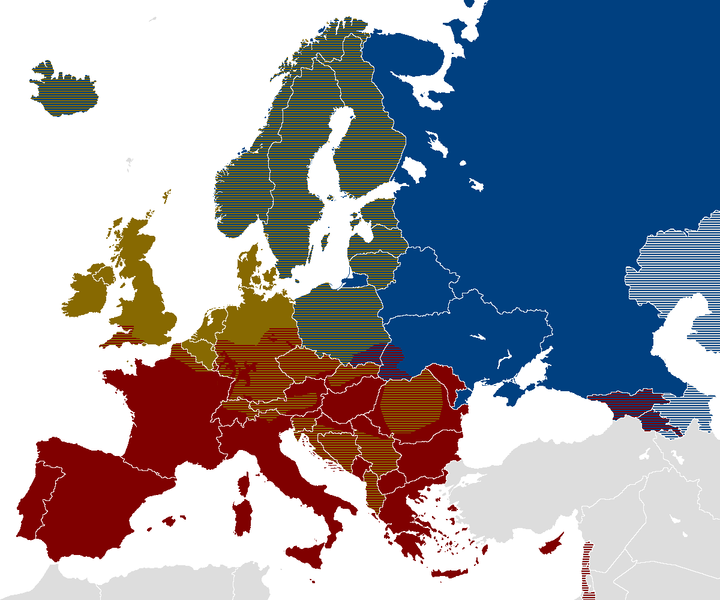Since alcoholism treatment began, a purely scientific-medical approach has been at the forefront of efforts to sober people up. AA and the 12 Steps arose with the failure of psychological help alone to save the addict from his disease.
The latest attempt is called ‘Smart Recovery,’
Note that part of the article was retracted, having misrepresented his criticism of AA:
SR does have a manual, which gives you some idea of how it is organized:
It is primarily based on Cognitive Behavioral Therapy, which appears to be fairly effective in the treatment of Obsessive Compulsive Disorders. CBT has helped a lot of people. But, it is the latest trend, and so we need to see where psychology goes over the next 30 years to see how it pans out compared to other systems.
‘Smart Recovery’ grew out of ‘Rational Recovery,’ another CBT-based approach that officially disbanded. Rational Recovery started because some addicts refused to accept the concept of a Higher Power, as ambiguous as the term appears. It was too much for them, and so a new approach was developed to avoid reliance on anything other than the self.
From Wikipedia:
“Rational Recovery claims that “AVRT has made recovery groups obsolete.” In 1998, Rational Recovery announced, “The Recovery Group Movement is Over!...Beginning January 1, 1999, all addiction recovery group meetings for Rational Recovery in the United States, Canada, and abroad are hereby canceled and will not be rescheduled ever again, it's just a waste of time and is completely unproductive.” Despite those remarks, there are still some groups in existence today, although the numbers are dwindling.
“In a 1993 research study led by Marc Galanter, former president of both the American Society of Addiction Medicine and the American Association of Addiction Psychiatry, attempted to measure the impact of Rational Recovery on members. The research found that “Rational Recovery succeeded in engaging substance abusers and promoting abstinence among many of them while presenting a cognitive orientation that is different from the spiritual one of AA. Its utility in substance abuse treatment warrants further assessment. The results of the impact on this type of recovery are too few to make an educational assumption” This research was conducted before Rational Recovery disbanded their meetings in favor of self-recovery treatment. SMART Recovery split from Rational Recovery just after this research and continues to offer these same groups.”
Disbanding RR prevented field studies of its success rates, and so we have little clinical evidence of its effectiveness.
The problem with this approach is that it still relies on the broken will of the addict to heal himself. While the 12 Steps require willingness, it is not self-will-powered system. The self-will is considered broken, and so it cannot be used. The addict relies on God, through the sponsor and group, so sort out reality from fiction and ‘return to sanity.’
Rational/Smart Recovery does not assume a broken will, but a dysfunctional one which is still intact enough to make decisions on its own if realigned and fed the proper data.
So, what do we make of this? Well, AA itself boasts only of its results when all other methods have been tried. Ration Recovery or Smart Recovery might work for some, in which case we ought to wish them well. There simply is no argument: if you can will yourself to stop drinking, then do so!
The 12 Steps are for those who have had no success with any other method. It is for those who are beyond the kind of help that SR offers. Some people can have a profound change of heart that needs no further work. The addiction, or the appearance of an addiction, just stops.
There are also people who abuse substances for a certain period of time, appearing to be addicts, but then stop the abuse and regain responsible behavior. Again, if you can stop abusing and regain control, then do so. You don’t need God’s help, steps, sponsors, groups or anything else. Just do it.
Like the woman with an issue of blood (Matthew 9:19-21, Mark 5:24-26, & Luke 8:42-45), once you have tried all the doctors, the only option left is God. If you can find help elsewhere, then find it.
The amount of work, the humiliation, and the pain of the 12-Step process almost makes it too much for people who can fathom some other alternative way of getting sober. We wish them well, and will always welcome them if they decide to try what we do.
For over 70 years, the 12 Steps have had a proven record of helping the hopeless alcoholics become healthy and happy members of society. Though no program can boast a 100% success rate, groups like AA and NA have higher success rates than any counselling program alone has been able to achieve.
In like manner, the Orthodox Church has the longest track record of enduring persecution for Christ's sake while producing saints and healing the souls and bodies of those who repent. The 12 Steps ultimately lead to the realization of the Church as the destination of the addict, and I believe this is the right time to begin to proclaim this reality out in the open.
There are many people who will always reject God. We do not hate them. We ought to, instead, pray for them.

